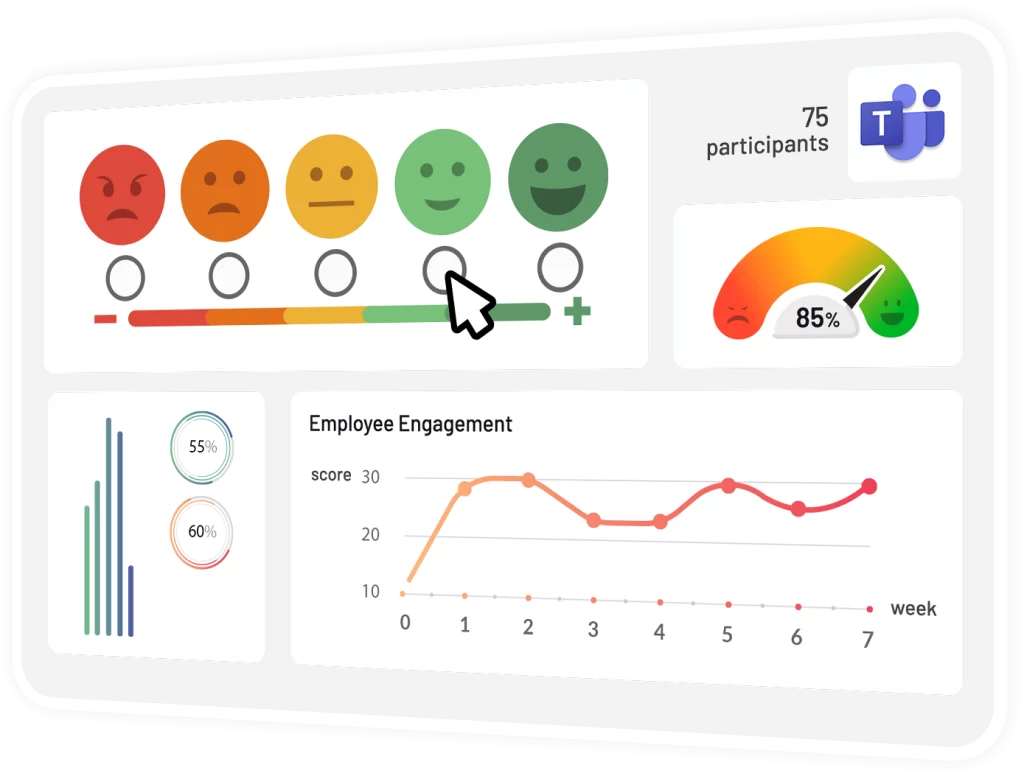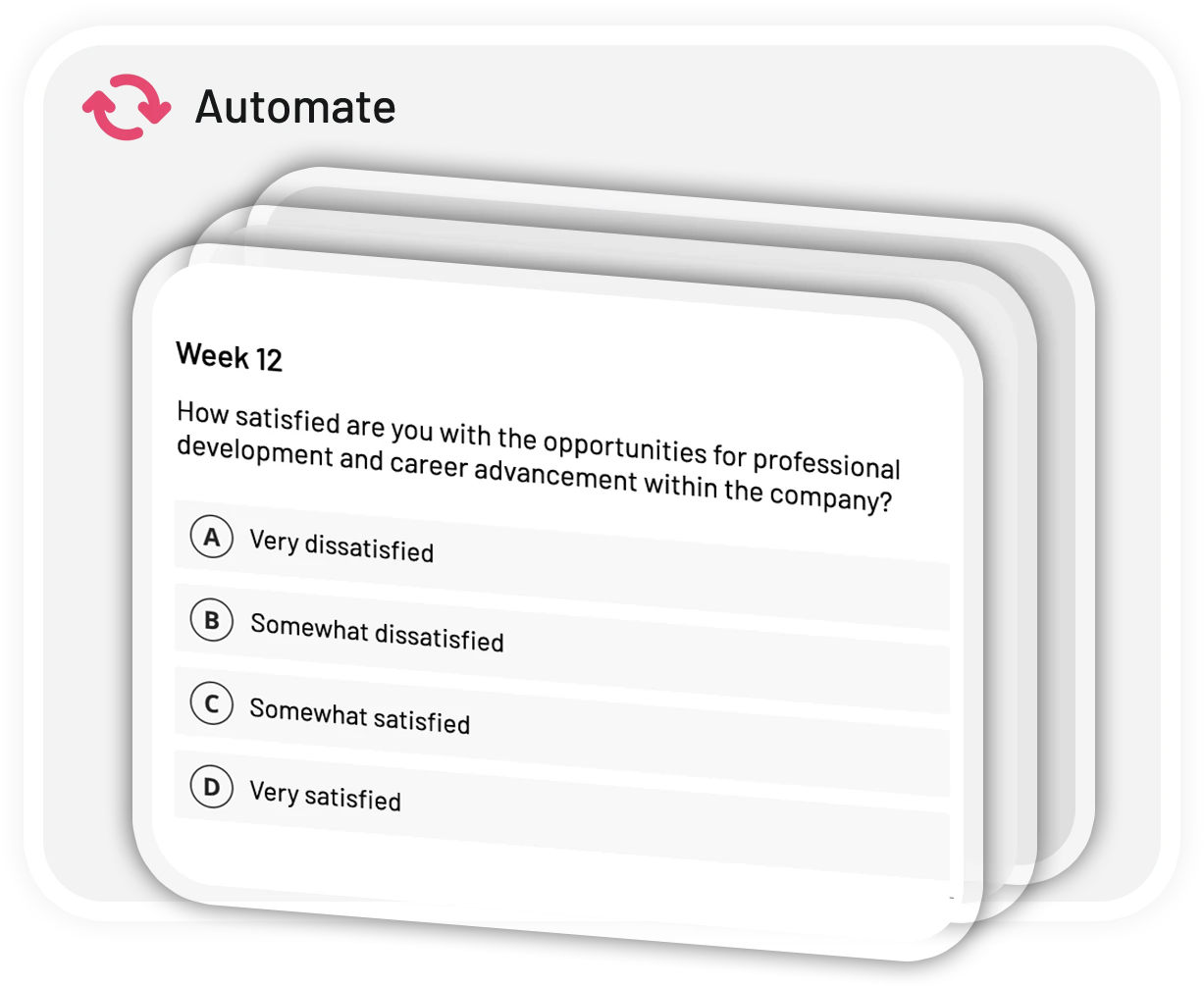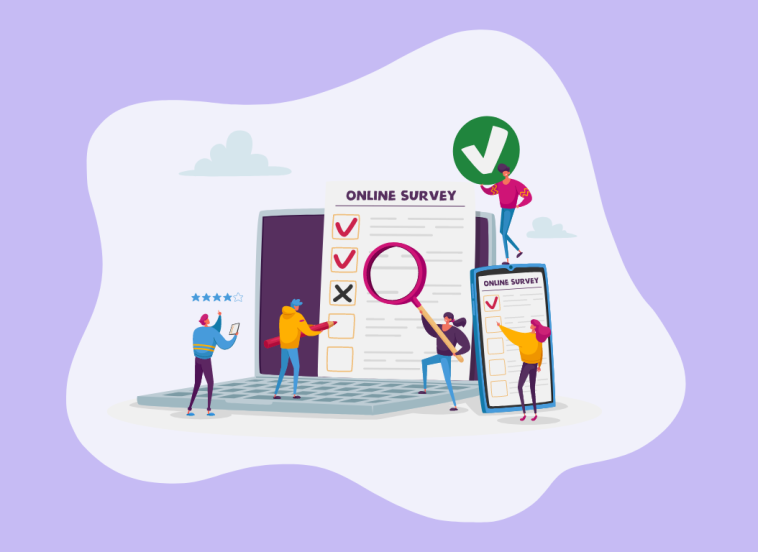So you’ve decided to conduct employee pulse surveys! Here is the catch: Your pulse surveys are only as good as the employee pulse survey questions you ask in them!
Asking the right employee pulse survey questions in fact is a crucial part of almost every facet of leading a group of people.
Whether you are conducting performance reviews or sending out employee engagement surveys, the only way to get the most out of them, you need to be asking the right questions.
The underlying driving force behind the power of asking the right employee pulse survey questions is simple: Curiosity. Whether you are working in a conventional setup or working remotely, you need leaders who are curious.
When you ask employee pulse survey questions, you shouldn’t ask them to check a list, you should be asking them because you’re actually curious about the answers.
So without further ado, here are the 90 best employee pulse survey questions curious leaders should be asking regularly!
Table of Contents
90 Best Employee Pulse Survey Questions
A. Employee Pulse Survey Questions Related to Company Culture
Building a positive company culture ranks among some of the most important duties of any leader. Implementing a culture of recognition, or fostering a culture of creativity is easier said than done.
In fact, once you’re confident in the culture you’ve instilled in a company, that is when the real work begins. Questions related to company culture help curious leaders get a better picture of the existing company culture. Here are some employee pulse survey questions examples:
- How would you rate our company culture?
- Do you feel that the company’s values align with your personal values?
- Do you feel that the company is inclusive and supportive of diverse backgrounds and perspectives?
- How would you describe the level of collaboration between different teams or departments?
- Do you feel that you have the resources you need to do your job well?
- What do you believe are the core values of the company?
- How comfortable are you with sharing your opinions and ideas with colleagues?
- What types of initiatives or programs would you like to see implemented to promote diversity, equity, and inclusion in the workplace?
- In your opinion, how important is employee wellness in the company culture?
- What do you believe are the company’s strengths and weaknesses in terms of work-life balance?
B. Employee Pulse Survey Questions related to Employee Engagement
Employee engagement still stands as one of the most important employee performance metrics of our time. The difference between having engaged employees and disengaged employees just might be the difference between running a productive team or not.
Asking employee pulse survey questions on employee engagement is key in measuring how engaged your employees are.
- How satisfied are you with your job overall?
- How often do you feel motivated to go above and beyond in your work?
- Do you feel that your work is meaningful and aligned with the company’s mission?
- How well does your supervisor recognize your accomplishments and contributions?
- Do you feel that your opinions and feedback are valued by your manager?
- What motivates you to come to work every day?
- How often do you feel recognized or appreciated for your contributions to the company?
- What do you believe are the most important benefits and perks that the company offers?
- What changes would you like to see in your role or responsibilities to increase your engagement?
- How connected do you feel to the company’s mission and vision?
C. Employee Pulse Survey Questions related to Performance Management
Performance management involves setting goals, providing feedback, and evaluating employee performance. This, in fact, might be one of the broadest categories on this list.
As you’re coming up with employee pulse survey questions related to performance management, you need to make sure that you keep the fact that performance is a continuous process, in mind. Let’s look at these employee pulse survey sample questions.
- Do you feel that your supervisor provides clear and actionable feedback on your performance?
- How well does your supervisor communicate expectations for your role?
- How frequently do you have opportunities to discuss your performance with your supervisor?
- How well does the company support your professional growth and development?
- How effective is the company’s performance evaluation process in helping you improve?
- How do you feel about the feedback you receive from your manager on your performance?
- What support or resources would help you improve your performance in your role?
- How do you measure your success in your current role?
- What are your career goals, and how can the company support you in achieving them?
- How do you feel about the company’s performance review process?
Leveraging technology

As we stated above, and in countless other blog posts, performance is a continuous process, not an individual event.
One of the best things a leader can do while conducting pulse surveys is to integrate employee engagement, feedback, and recognition into the whole process.
If you’re leading a team in Microsoft Teams, then guess what? You’re in luck! By simply implementing Teamflect, an all-in-one performance management solution specifically designed for Microsoft Teams, you can:
- Create employee engagement surveys
- Manage tasks
- Create goals and OKRs
- Have access to an extensive performance review template gallery
- Implement custom employee pulse survey questions
- and more!



